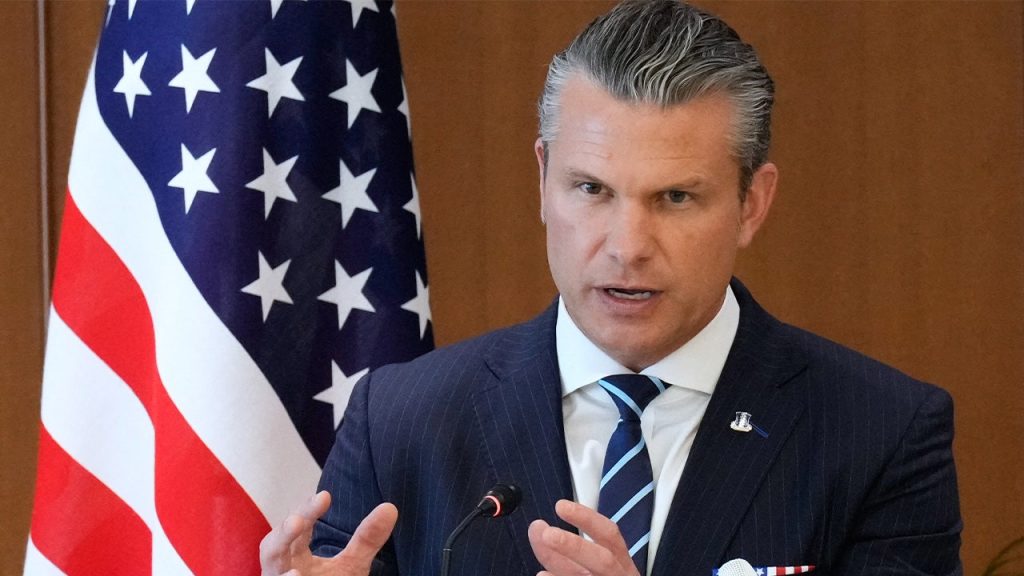U.S. Military Expands Anti-Drug Campaign in Caribbean Waters
In what appears to be an escalating campaign against drug trafficking networks in the Caribbean, the U.S. military has conducted another strike against what War Secretary Pete Hegseth described as a “narco-terror vessel.” This latest operation, which resulted in the deaths of three suspected smugglers, was reportedly carried out under direct orders from President Donald Trump, marking a significant expansion of military force against drug trafficking organizations. Hegseth emphasized the intelligence-based nature of the operation, stating that the targeted vessel was “known by our intelligence to be involved in illicit narcotics smuggling” and was traveling along an established drug trafficking route while carrying narcotics.
The strike represents the 15th publicly acknowledged U.S. military operation against suspected drug trafficking groups in the Caribbean and eastern Pacific since September, highlighting what Hegseth has termed a “maritime offensive” against transnational cartels. The aggressive campaign has resulted in at least 64 casualties according to defense officials familiar with the operations. In his public statements, Hegseth has adopted stark language to describe these groups, pledging that the military will “track them, map them, hunt them, and kill them,” drawing explicit parallels between the treatment of drug traffickers and the U.S. approach toward Al Qaeda following the September 11 attacks.
President Trump has defended these military actions as necessary measures to disrupt the flow of drugs into the United States. The administration has taken the position that drug cartels have evolved into transnational terrorist organizations, arguing that America is engaged in an “armed conflict” with these groups under the same legal authority that was invoked following the 9/11 attacks. This represents a significant shift in how the U.S. government conceptualizes and responds to drug trafficking, effectively militarizing what has traditionally been approached as a law enforcement issue. By framing cartels as terrorist entities, the administration appears to be leveraging national security authorities to justify direct military action.
The escalating military campaign has prompted growing concern from lawmakers who are demanding greater transparency regarding the legal rationale behind these operations. Senate Democrats recently sent a letter to senior administration officials, including Secretary of State Marco Rubio, Director of National Intelligence Tulsi Gabbard, and War Secretary Hegseth, urging them to disclose the legal justifications for the strikes and provide a comprehensive list of entities deemed legitimate targets under the president’s directive. The letter, signed by Senate Minority Leader Chuck Schumer and several prominent Democrats including Senators Jack Reed and Jeanne Shaheen, accused the administration of selectively sharing information with certain lawmakers while excluding others from crucial briefings.
Separately, bipartisan leadership from the Senate Armed Services Committee has released previously undisclosed correspondence sent to Hegseth in late September and early October. These letters pressed the Pentagon to outline its legal framework for authorizing these strikes and to identify which specific cartels the administration has formally designated as terrorist organizations. The release of these letters suggests growing bipartisan concern about the potential expansion of executive war powers and the lack of congressional oversight regarding these military operations. The situation raises important questions about the proper balance between national security imperatives and democratic accountability in the conduct of what appears to be an expanding military campaign.
As this maritime offensive continues to escalate, the administration faces mounting pressure to provide clearer legal justifications and greater transparency about its targeting decisions. The framing of drug traffickers as terrorists represents a significant policy shift with far-reaching implications for U.S. national security strategy, international relations in the Western Hemisphere, and domestic drug policy. While the administration has emphasized the threat posed by drug trafficking to American communities, critics worry about the precedent being set by applying wartime authorities to combat what has traditionally been considered criminal activity, potentially blurring the lines between law enforcement and military operations in ways that could have lasting consequences for U.S. security policy and civil liberties.


